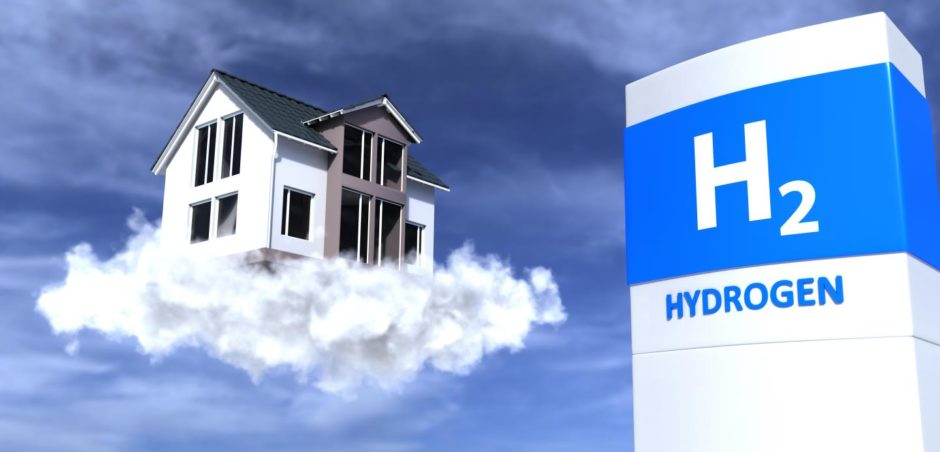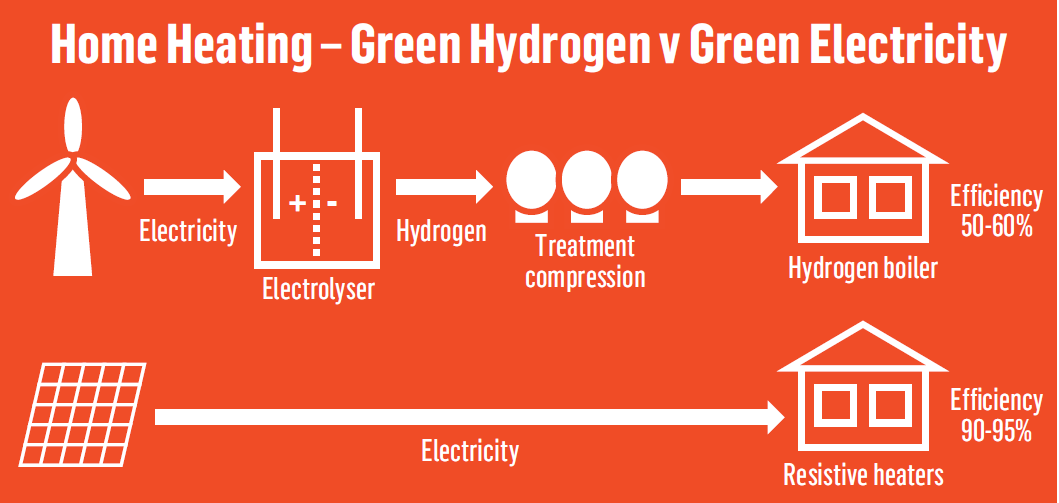
The energy sector is awash with the benefits of hydrogen for domestic heating. It’s the most common element in Universe, it burns to water, it can be swapped out for natural gas – it is a wonder fuel.
I have to admit that a couple of years ago I was behind hydrogen until I started to do my own research on the societal, economic and environmental benefits of hydrogen compared to other net-zero pathways, particularly electrification. I have concluded that hydrogen is being pushed by powerful groups in the absence of supporting comparative evidence.
Is there anything wrong with lobbying for a solution that supports your business interest? Absolutely not. The Renault dealer doesn’t tell you to go up the road as Ford are doing a great deal. The Renault dealer will try and sell you a car and give you evidence for choosing Renault. The car buyer has to do his/her own homework and make an informed decision based upon a comparative dealer analysis. The same is true for the hydrogen consumer.
Returning to domestic heating, the main consumer choice will be between hydrogen or electrification. Let’s compare the efficiency of using green hydrogen in a home boiler with electricity – see figure.

The synthesis, treatment and transportation of hydrogen is very inefficient. That leads to a first conclusion – the renewable energy stations will be almost double the size of that required by electrification. Secondly, on average green hydrogen cannot be cheaper than the electricity it is derived from. This is the opposite of today’s domestic energy tariffs where gas is around a quarter the price of electricity.
To use hydrogen for home heating the householder will have to install a new hydrogen boiler. The electrification route would use resistive heaters – a much cheaper option than a new boiler. So on economic grounds, electrification looks the way to go for domestic heating.
Safety is a foremost societal concern. Hydrogen is a very small molecule and, as a consequence, it is much more likely to leak than natural gas. Hydrogen has a very low ignition energy level compared to natural gas hence it is more likely to catch fire or explode. Electrification is clearly safer as the house already uses electricity and no new hazard is being introduced.
From an environment standpoint, when hydrogen is burned it also forms nitrous oxides (NOx). NOx can be seen as a yellowish air layer over some cities. NOx forms ground-level ozone, which can trigger serious respiratory problems. It also contributes to the formation of acid rain. NOx is also a global warming agent. On environmental grounds electrification is a better option than hydrogen.
So, on this simple analysis electrification would be the preferred option for home heating.
However, this analysis is too simplistic as it ignores the cost of grid upgrades, storage, heat pumps, supply chain stimulation, creation of jobs, etc.
What it does demonstrate is that on economic, societal and environmental grounds, a comparative case can be made that demonstrates green hydrogen is not the wonder fuel claimed by many.
The consumer has to be given unbiased information to make an informed choice for home heating. From my research that is not happening and the debate is being overly-influenced by business interests. The Hydrogen APPG, Hydrogen Task Force, Hydrogen Council are all lobbying parliament – all are sponsored by big business.
Where is the Electrification APPG, Electrification Task Force and Electrification Council to get balance into the debate?
Tom Baxter is visiting professor of chemical engineering at Strathclyde University and a retired technical director at Genesis Oil and Gas Consultants
Recommended for you
